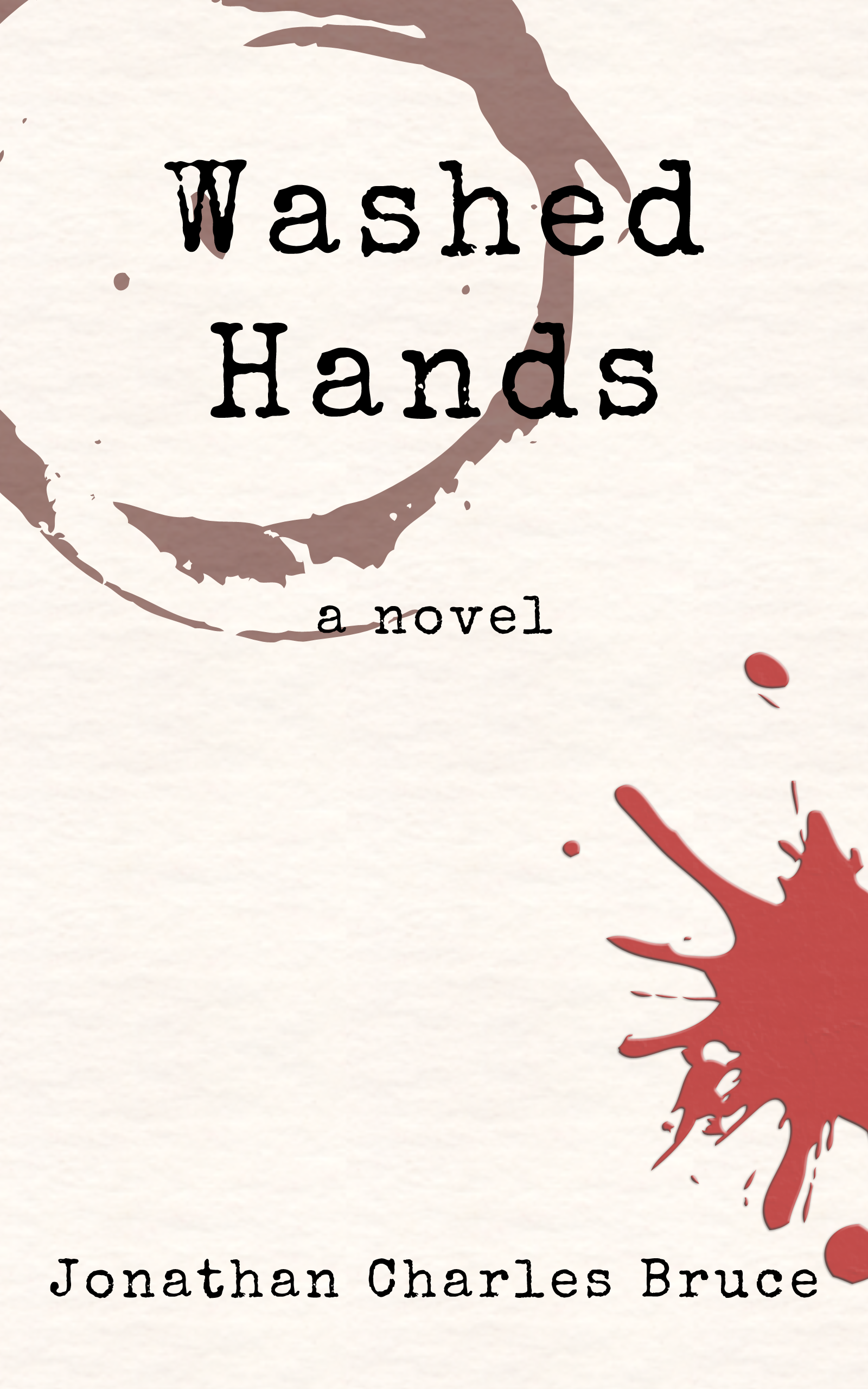Some Thoughts
on
Buffy the Vampire Slayer
In the proud tradition of never hopping on a bandwagon until it has stopped, sold its tires, and sent its horses to the glue factory, I just started watching Buffy the Vampire Slayer, the venerated television series by Joss Whedon. While I knew many people who were deeply invested in the show, like my mother and sister, I only saw a handful of episodes and walked away entertained but somehow immune to the cultlike adoration the show instilled in its fans. Maybe it’s my nonaddictive personality that keeps me sober and perpetually lonely that allowed me to do so, or maybe it’s because as I’ve mentioned before, I was kind of a dumb child.
“But Jonathan, you imposing enforcer of gender equality, how can you have written such strong female characters without the influence of Buffy?” you may shout into your speakers, hoping against hope that I will receive your transmission. First off, I haven’t had the opportunity for anyone to evaluate my female characters outside of passing reference, so feel free to send me a 2,000 word essay on that because god knows I’d be reassured that I’m not typing up misogynist spunk. But second, and here’s the thing, I read a lot and was already surrounded by women who could take care of themselves. I didn’t really need Buffy the Vampire Slayer as inspiration, but I’m still glad it was there for people. Strong female characters are fairly hard to come by, and most boil down to “Strong until a man comes to whisk them away,” which I’m happy to say hasn’t really presented itself thus far in the series. It’s not perfect, but, then again, nothing is.
Anyway, the whole point of this (admittedly ramble-tastic) post is that I just finished going through the first three seasons with my ladyfriend Ashlie. No one asked me to, but I’d like to share my thoughts and observations for the first 56 episodes. For those of you who have been living under a rock in an alternate dimension’s Mars, Buffy the Vampire Slayer is the heart warming story of a teenage girl who – by some combination of magic and genetics or something – is given the gift of supernatural strength, agility, and snark to combat the forces of darkness when the previous job holder dies. She is to be corralled and trained by her Watcher, an extremely British man representing the Council, because naming things the most boring and direct way possible is as proud a British tradition as oppressing the colonized and monocles. The first three seasons deal with life as the Slayer and high school, which naturally means loads of drama from boys, friends, and classes.
The very first thing I’d like to point out is that I’m glad that one of the first things the writer/director got out of the way was just why there would be so many supernatural things happening in a town deceptively called Sunnydale. It turns out that there’s a gate to hell right below the town – imaginatively called the Hellmouth – that draws in mythical beasties through subtle or direct means. The reason why this is important is because it a) justifies why the hell monsters continually show up and b) why they even bother when Team Evil has a batting average of 0 when they go against the local slayer.
This brings up a rather silly reality that, while self-referentially referred to in the beginning of season three, is still pretty horrifying. By my (admittedly half-hearted) counting, 37 students or faculty from Sunnydale High School die or go missing before the season three finale. Now, I understand that teenagers can be surprisingly thick, but how are there any kids left here? Why haven’t the parents gathered up their children and run screaming for the hills?
They do have a flaccid excuse for this behavior: parents are burying their experience with the supernatural so they can continue living without breaking down. This doesn’t actually do a whole lot to explain why parents of children who have died/vanished without a trace don’t do more to, I don’t know, get the fuck out of the world’s most terrifying city. I do have a theory, though: the same mystical energy that pulls evil to Sunnydale also reduces everyone’s operating IQ to single digits while leaving the sarcasm portion of their brain untouched. It’s either that or everything in Sunnydale is made with a lead base.
Whatever the reason, even the supernatural creatures and Buffy herself suffer from extreme cases of the derps. Every demonic entity is chatty as all hell, even when it means their plan will fail. And everyone falls for really obvious traps over and over again. Oh, a bad guy lured Buffy away from her friends so they could attack her friends and use/kill them? Color me surprised, just as much as the last six times that happened.
The mythology of Buffy is also a little muddled. So, there’s only one slayer at a time, which I can kind of get because the rest of the planet has nothing bad happening on it ever. In any case, we have the Council, a group of stodgy dudes and dudettes whose job it is to... um... oversee the one slayer? Also, they have agents all over the world, apparently. I mean, I get that we want to make Buffy unique and everything, but she’s only one person. We also don’t really get any indication of what they do, other than vague bureaucratic things. It’s just one of those things that the more you think about it, the more obvious it is that this wasn’t really thought out.
For example, Buffy dies at the end of season one (she gets better; also, spoiler, I suppose) and the next poor sap has ‘slayer.exe’ booted up in their brain. The unlucky sod is Kendra, a young lass from a vague, foreign country (although she has a hilariously wavering what-I-assume-to-be Jamaican accent). Here is the part that screams for attention, though: she has been training – with her watcher, no less – her whole life to be a slayer. What this means, essentially, is that at some point, someone knew she was the next in line literally a decade before it was necessary. Which means that someone had to know it was Buffy before her. Which means that they also knew it was Faith after Kendra. Oh, yeah, Kendra dies. Hope you didn’t get attached.
This bothers me on a multitude of levels. Shouldn’t all these girls be training from infancy then? Or is it just in the non-white portions of the world where children are taken from their parents and forced to endure Jedi-like training? And the worst part about it is that Kendra, despite her aggressive training, is objectively worse than Buffy, a girl who usually hates her role and tries to get out of training as much as possible. Kendra is in three episodes, and then she is unceremoniously killed at the end of the third in one of the least impressive attempt to up the stakes in a television show (ha ha, I made a funny). Moments like this make me think that the show was never really meant to survive past the first season.
Despite these misgivings, the show is really entertaining. For as much as the vampires never shut the hell up, the dialogue is really good. Characters have unique arcs and behave relatively like normal people. I still maintain that normal people would have escaped Sunnydale, but when the town’s average IQ is 6, you do what you can. Xander actually reminds me of myself at that age (the age of stupid), constantly saying shit that he thinks is funny in a desperate attempt to remain relevant and make his friends laugh. Also like me, he is useless in a fight and is more suited to looking pretty in the background while the competent people do the actual punching.
Which brings me to one of the things I like the most about Buffy as a show. Although Buffy is the chosen one or whatever, she’s just really good at killing the bad guys. Other characters, even non-super powered ones, can actually somewhat defend themselves and occasionally take out a beastie on their own. This doesn’t make Buffy any less heroic, it makes the ancillary cast less useless which is a nice touch. If you were to compare this to, say, Twilight because you want to kick the shit out of something, all the regular people in the show actually have a chance to not depend on Buffy. Bella routinely has to depend on other, big strong man-types to save her from things. This basically means that characters in Buffy are all agents of their own destiny rather than having things happen to them.
The plots of the various episodes are also, for the most part, really interesting. My two favorites are when Buffy gets infected by a demon and subsequently develops uncontrollable telepathy (as you do) and an episode that explores witch hunts through history as the result of a beastie that feeds off of human misery. The season-wide arcs are a little weaker, but I will attribute that phenomenon to the writer still trying to find a good groove. Season three is probably the best of the longer plots, but the early going is still pretty rough, especially because this series has a problem with killing supposed badass villains repeatedly and without much fanfare to show “Oh, no, this new guy really means business!” But outside of a few exceptions, every bad guy (from lowly acolyte to the season’s final boss) can be killed by punching, so I don’t see the point of constantly killing baddies for arbitrary you-should-pay-attention-now rationales.
That being said, the mayor from season three is a really great villain, even if his sendoff is less than dignified. I especially love the restraint about his past, the little hints that we get that he is somewhat more and less than human. I also find his relationship with Faith, the slayer who defects to his side, really interesting. More than anyone else, good or evil, he acts like a father to her. It is clear that he loves Faith like a daughter, especially when his normally chipper demeanor cracks when she is lying in a coma at the hospital. Although he is a bad guy, it’s hard not to feel for him... until he tries killing Buffy, that is. Even then, the audience almost sees it as the actions of a despairing father rather than a horrible demon bent on destruction. Or ruling. Or... something.
Season three’s finale actually encapsulates one of the best things about Buffy as a series. The mayor finally gets enough experience points or whatever to level up into a big snake-thing. Buffy uses what remains of the mayor’s humanity – his fury and lust for vengeance for what she did to Faith – to lure him into an enclosed space loaded with explosives. Ultimately, it works, but there’s still the fact that Buffy was using the mayor’s humanity to kill him. It wasn’t even a punch-off, like most of her fights. No, this was just straight-up manipulation of emotions.
Buffy the Vampire Slayer is initially presented as a classic good-versus-evil struggle, but there are so many shades of grey that it provokes a lot of thought than, let’s face it, the more brainless black-and-white morality tales. Sure, you could take it as just a simple coming-of-age story with vampires, but it’s clearly so much more than that. For all the nitpicks I have with it, they are just errant brush hairs embedded into a beautiful painting. You can spend hours justifying why they’re there and how they add to the story and totally make sense, bro, but all you’d do is bring up more errors. Nothing breaks the story over its knee, which in the previous metaphor would be dried puddles of sick all over the canvas.
Huh. I should really stop using metaphors.
There's a part two to this, now.
< PREVIOUS ENTRY • NEXT ENTRY >
Advice • Fiction • Gaming • General Musings • Reviews





